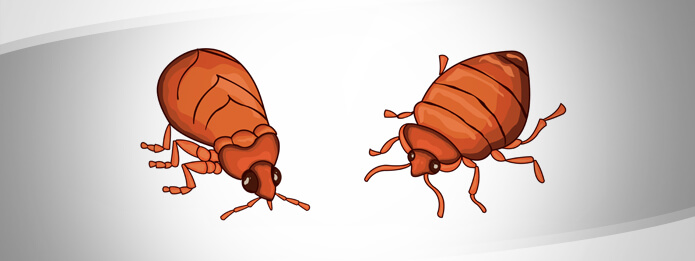For decades pesticides have been the most common treatment option for bed bugs and other household pests. They provide a convenient and effective method to eliminate infestations in homes, hotels, and other environments.
While the conversation around pesticides has shifted over the years it is still important to understand the significant advantages they bring to bed bug control. Traditional chemical-based pesticides continue to play an important role in controlling these unwanted pests. So let’s talk a little about chemical-based bed bug treatments and how they compare against alternative methods.
Efficiency
One of the primary advantages of traditional pesticides for bed bug control is their efficiency. Bed bugs are notoriously hard to eliminate. Contact pesticides work quickly to knock down bed bug populations by killing them on contact. This fast acting nature is particularly beneficial in urgent situations where rapid elimination is necessary.
It’s true that some bed bugs can develop a resistance to certain types of chemical pesticides. However, rotating or combining different types of pesticides can help maintain their effectiveness. In cases where resistance does develop pesticides can still play an important role by weakening bed bugs and reducing their ability to reproduce. Thereby making other control methods more effective.
Cost Effective
One of the most important advantages of traditional pesticides is their affordability. Especially when compared to some alternative methods such as heat treatments or fumigation. For homeowners and small businesses the lower cost of treatment makes pesticides a popular choice when it comes to bed bug control.
Pesticides are also an effective way to manage bed bug infestations in larger settings like hotels and apartment complexes. In these situations the cost of alternative treatments can be prohibitive, especially if multiple units are affected. Traditional pesticides allow for more extensive coverage at a fraction of what other treatment methods might cost.
Long Lasting
Most modern pesticides used in bed bug control feature long lasting residual effects. This means that they continue to work even after the initial application. This long lasting action helps to control any bed bugs that may have escaped exposure during treatment, only to emerge later.
The residual effects of modern chemical pesticides help to provide ongoing protection against bed bug infestations, reducing the need for costly reapplications. For those living in areas where bed bugs are prevalent the ability to maintain control over longer periods makes for a significant advantages over other treatment options.
Comprehensive Control
Pesticides target bed bugs at all stages of their life-cycle, including adults, nymphs and eggs. Insect Growth Regulators (IGRs) are often used in conjunction with traditional pesticides to further disrupt the development of young bed bugs, preventing them from maturing into adulthood. It is a comprehensive approach that is an essential part of bed bug elimination.
Regulated and Safe
Over the last few decades pesticides have undergone significant regulatory scrutiny. Many improvements have been made to ensure they’re safe for both humans and the environment. Today’s modern pesticides have been designed to be applied in small targeted amounts, reducing exposure risks to people as well as their pets.
Pest control professionals are trained to use pesticides safely and effectively. This ensures that treatments are conducted in a manner that minimizes any potential harm to clients and their families. Modern formulations and strict regulations help to protect consumers and the environment while still allowing for effective bed bug control.
Supplements Non-Chemical Methods
Even when non-chemical control methods are preferred, pesticides can still play an important supplementary role in controlling bed bug populations. For example, heat treatment can effectively kill bed bugs in infested furniture. But pesticides may be applied afterward to prevent re-infestation and to kill any remaining bed bugs in areas not reached by the heat.
Pesticides are also often used in conjunction with steam treatments, vacuuming, or physical removal of bed bugs to provide a more complete and effective approach to pest control. In this way pesticides serves as a valuable part of an integrated solution to the problem of bed bugs.
The Popular Choice for Bed Bug Elimination
Pesticides offer a wide range of advantages for bed bug control. They are efficient, affordable, and long lasting. They can be used to target bed bugs at all stages of their life-cycle and be used with other control methods to provide comprehensive pest control for homes and businesses alike. For many clients pesticides remain a practical, reliable, and cost effective option for addressing bed bug infestations.
Published by Scott Palatnik
We are Bedbug Inspection & Elimination specialists.
From Manhattan to Montauk and all points in between.
Got questions?
We got answers.
Give us a call @ 516-619-6149

